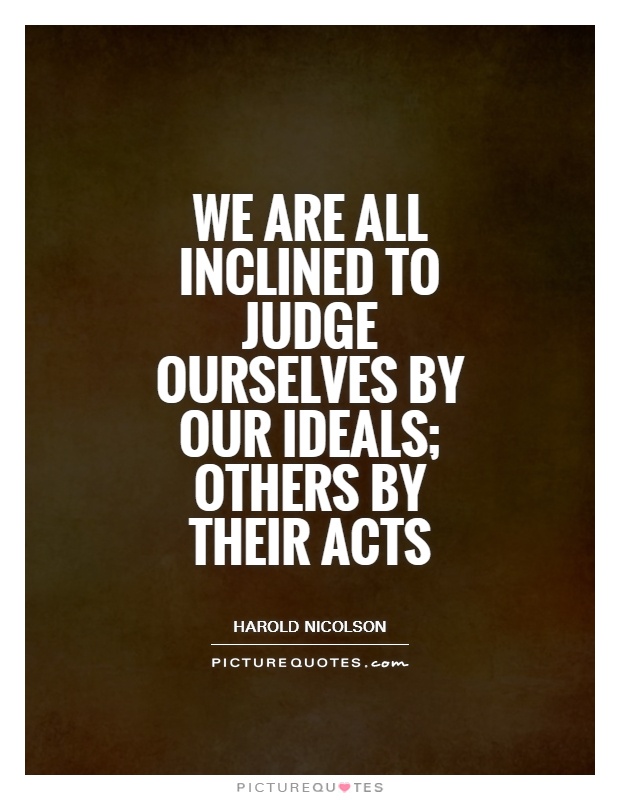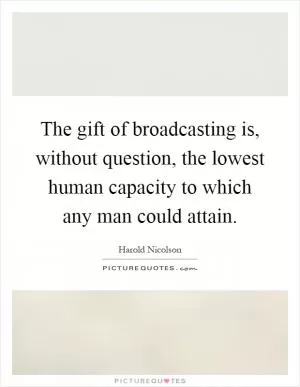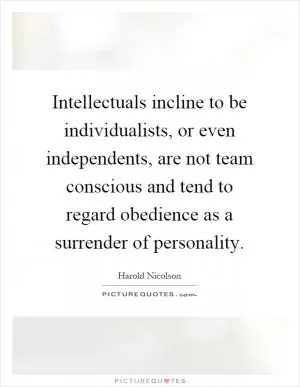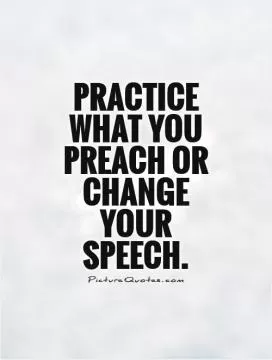We are all inclined to judge ourselves by our ideals; others by their acts

We are all inclined to judge ourselves by our ideals; others by their acts
Harold Nicolson, a British diplomat, politician, and author, was known for his insightful observations on human nature and society. One of his most famous quotes, "We are all inclined to judge ourselves by our ideals; others by their acts," encapsulates a fundamental truth about human behavior and the way we perceive ourselves and others.Nicolson's words highlight the inherent bias and subjectivity that often color our judgments of ourselves and those around us. We tend to hold ourselves to high standards and measure our worth based on our ideals, aspirations, and intentions. We see ourselves as inherently good, moral, and virtuous beings, striving to live up to our own lofty expectations. However, when it comes to evaluating others, we often focus on their actions, behaviors, and outcomes, rather than their intentions or underlying motivations.
This discrepancy in judgment can lead to misunderstandings, conflicts, and unfair assessments of others. We may be quick to criticize and condemn someone for their mistakes, flaws, or shortcomings, without considering the complexities of their circumstances or the nuances of their character. In contrast, we may be more forgiving and lenient towards ourselves, rationalizing our own missteps and justifying our decisions based on our internal moral compass.
Nicolson's quote also speaks to the importance of empathy, compassion, and understanding in our interactions with others. By recognizing the gap between our ideals and our actions, we can cultivate a greater sense of humility, self-awareness, and empathy towards ourselves and those around us. We can strive to be more forgiving, tolerant, and accepting of the imperfections and vulnerabilities that make us human.












 Friendship Quotes
Friendship Quotes Love Quotes
Love Quotes Life Quotes
Life Quotes Funny Quotes
Funny Quotes Motivational Quotes
Motivational Quotes Inspirational Quotes
Inspirational Quotes